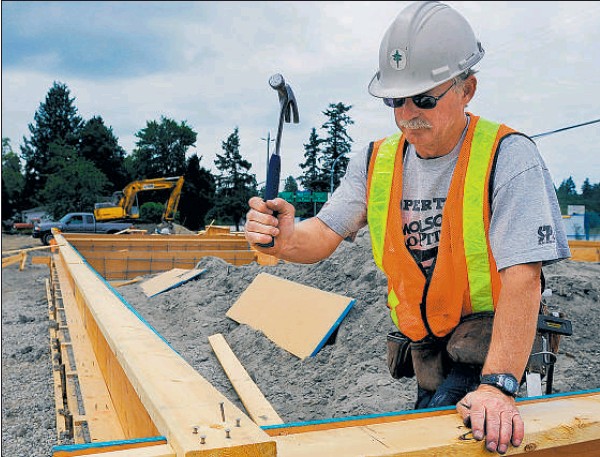Citizens struggle to put a roof over their heads, survey says
Province
Vancouverites pay the highest rents in Canada and have a tough time putting a roof over their heads, Canada Mortgage and Housing Corp. says.
Monthly rents in the Vancouver area in April averaged $1,154 for two-bedroom apartments in new and existing structures, CMHC said yesterday in its spring rental-market survey.
Just behind Vancouver were Calgary at $1,106, Toronto at $1,093, Edmonton at $1,059 and Victoria at $1,043, CMHC said.
Rents in existing buildings in the Vancouver area rose 2.7 per cent between April 2009 and the same month a year earlier, just below the national average of 2.9 per cent for 35 major centres, CMHC said.
The Vancouver area’s vacancy rate of 1.9 per cent for April and Victoria‘s rate of 1.2 per cent were among the lowest rates in the country, CMHC said. The two cities were the only centres in B.C. with rates below two per cent.
The Vancouver area had a vacancy rate of 0.9 per cent a year ago.
On the other hand, Abbotsford, where the vacancy rate of 4.8 per cent for April 2009 was the country’s third highest, offered some of Canada‘s best apartment-hunting conditions.
Nationally, condominiums are turning renters into buyers, sending the national average of apartment vacancies up in April over the previous year, CMHC said.
The survey shows vacancy rates in Canada‘s major centres were up slightly in April to 2.7 per cent from 2.6 per cent a year earlier.
“Completions of condominiums, which continue to attract renter households looking to move into home ownership, are decreasing demand for rental housing,” CMHC chief economist Bob Dugan said.
“Also, some of the completed condos compete with rental units if they were purchased by investors who then rent them out.
“These two factors have put upward pressure on the vacancy rate,” he said. “However, this has been balanced by higher levels of demand for rental housing.”
The tightest rental markets in Canada were in Quebec City, which boasts the lowest vacancy rate, at 0.6 per cent; Regina, at 0.7 per cent; and Winnipeg at 0.9 per cent.
The best places for apartment hunting are in southern Ontario — Windsor, Ont.’s vacancy rate was 15.5 per cent and St. Catharines-Niagara, Ont.’s 5.3 per cent.
Across the country, rent increases were highest in Saskatchewan, up 15.5 per cent in Saskatoon and 11.4 per cent in Regina.
© Copyright (c) The Province






